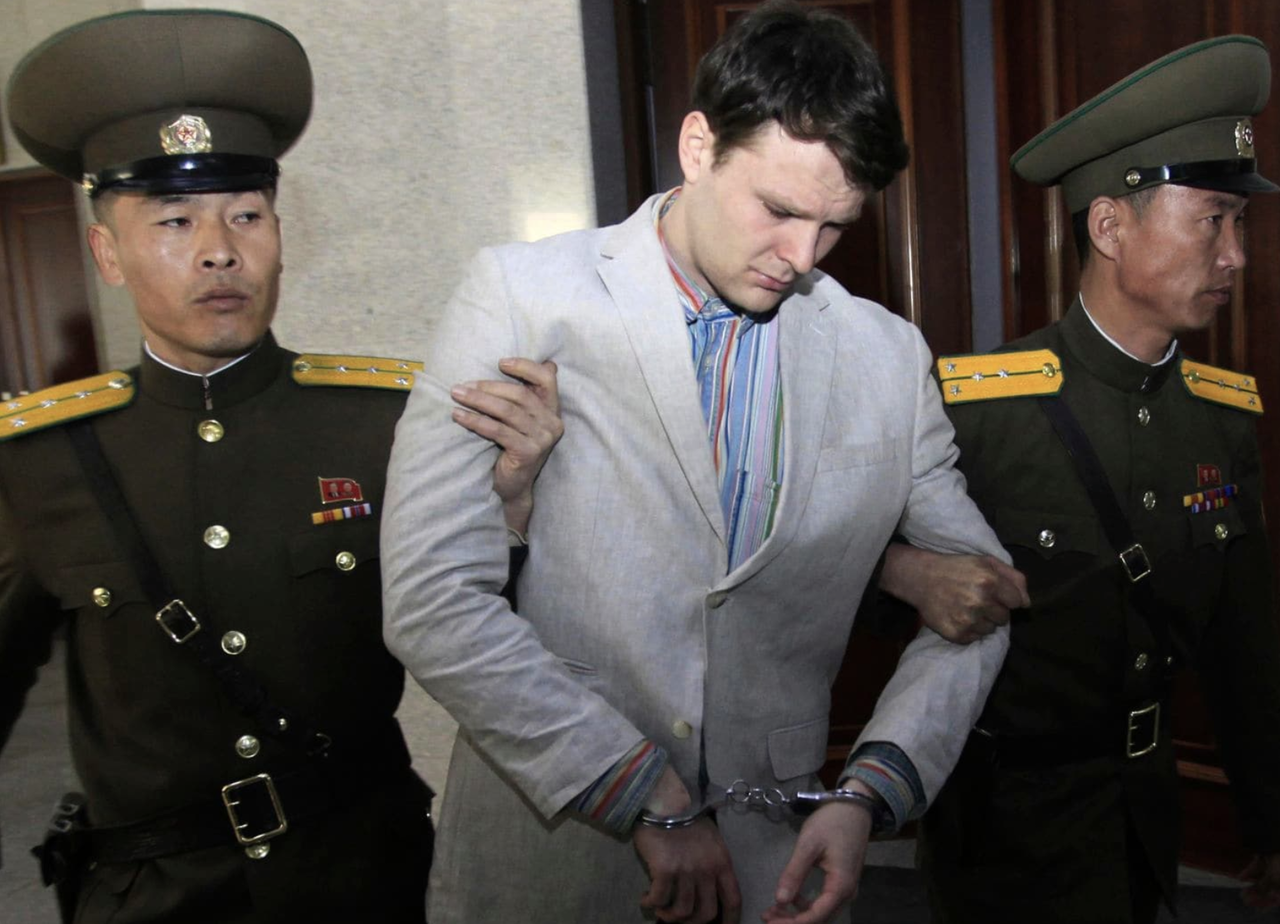The Washington Post just cast doubt on President Trump’s assertion that Kim Jong Un was unaware of American college student Otto Warmbier’s brutal treatment at the hands of the North Korean state by revealing that the US officials who negotiated for Warmbier’s release were presented with a $2 million bill for his medical care.
In a report that seems suspiciously ill-timed (hitting just hours after Kim wrapped up his first summit meeting with Russian President Vladimir Putin), WaPo reported that the North wouldn’t release Warmbier until the negotiators had signed a document promising to pay for his medical care, which they were instructed to sign by President Trump, who had discussed it with former Secretary of State Rex Tillerson.
Warmbier’s detention in an exclusive state hospital reserved for foreign patients, the presence of the massive bill, and the quality of care the young man received – which an American doctor begrudgingly admitted was “excellent” – all suggest that Kim likely knew about Warmbier’s case, and had probably been following it closely.
Once it arrived in the US, the bill was forward to the Treasury Department, where it remained unpaid through 2017. It’s unclear whether the administration paid it, though however it was handled, the fact that Trump has now held two summits with Kim suggests that the issue has been settled.
Warmbier’s family speculated that the bill might have been intended as a ransom. The White House refused to comment on the story.
The bill went to the Treasury Department, where it remained unpaid – throughout 2017, the people said. However, it is unclear whether the Trump administration later paid the bill, or whether it came up during preparations for Trump’s two summits with Kim Jong Un.
The White House declined to comment. “We do not comment on hostage negotiations, which is why they have been so successful during this administration,” White House press secretary Sarah Sanders wrote in an email.
Warmbier, who was a 21, fell into a coma for unknown reasons the night he was sentenced to 15 years in prison with hard labor in March 2016.
He was convicted on charges stemming from pulling down a propaganda sign in a Pyongyang hotel in the early hours of Jan. 1, 2016 — an infraction that would be minor in almost any other country, but in North Korea it was considered a “hostile act against the state.”
Fred Warmbier, Otto’s father, said he had never been told about the hospital bill, but said it sounded like a “ransom” for his late son.
In addition to the revelation about the bill, the WaPo story also included some never-before-revealed details about the negotiations that ultimately led to Warmbier’s freedom. According to the paper, the US wasn’t aware of Warmbier’s condition for a full 15 months after he collapsed and sunk into a coma upon being sentenced to 15 years hard labor. It’s believed that Warmbier suffered a ‘cardiovascular event’ – maybe a heart attack. The American doctor who examined him found no evidence of physical trauma, despite the widely held belief that he was tortured by the Kim regime. Once the State Department learned of Warmbier’s condition, it set off a scramble to secure his release, culminating in a visit by the State Department’s point man for North Korea to the hospital where Warmbier was being treated.
The doctor who accompanied him affirmed that Warmbier received “remarkable” care.
Yun and an emergency medicine doctor, Michael Flueckiger, traveled to Pyongyang on a medical evacuation plane. They were taken to the Friendship Hospital in the diplomatic district, a clinic where only foreigners are treated, and found Warmbier lying in a room marked “intensive care unit,” unresponsive and with a feeding tube in his nose.
Flueckiger examined Warmbier and asked the two North Korean doctors, who bore a thick pile of charts, questions about the lab work, scans and X-rays they had done.
Afterward, they went to a meeting room where the talks to free Warmbier began.
“I didn’t realize what a negotiation it was going to be to secure his release,” said Flueckiger, who is medical director of Phoenix Air Group, an aviation company based in Cartersville, Ga., that specializes in medical evacuations.
North Korean officials asked the doctor to write a report about his findings. “It was my impression that if I did not give them a document that I could sign off on, that would cause problems,” Flueckiger said in an interview.
But the American said he did not have to lie in his report. Whatever had happened to put Warmbier into that state, it was “evident” that he had received “really good care” in the hospital, he said. The doctors had done “state-of-the-art resuscitation” to revive Warmbier after he suffered a catastrophic cardiovascular collapse, and it was “remarkable” that he had no bedsores, Flueckiger said.
Reports of the bill set off a backlash against North Korea among groups critical of the regime.
“This is outrageous. They killed a perfectly healthy and happy college student and then had the audacity to expect the U.S. government to pay for his care,” said Greg Scarlatoiu, executive director of the Committee for Human Rights in North Korea.
After being brought back to a Cincinnati hospital, the comatose Warmbier died within six days. Though the exact cause of his injuries has never been determined, North Korea said that he had eaten pork and spinach shortly before his collapse, and theorized that his condition may have been brought on by an allergic reaction to sedatives he was given.
Notably, this isn’t the first time the North has delivered a bill for the medical care of an American hostage. Kenneth Bae, the missionary captured by the Kim regime and held for almost two years, was charged about $300,000 for care related to his diabetes. He didn’t end up paying any of it.
via ZeroHedge News http://bit.ly/2UV3Ujd Tyler Durden
